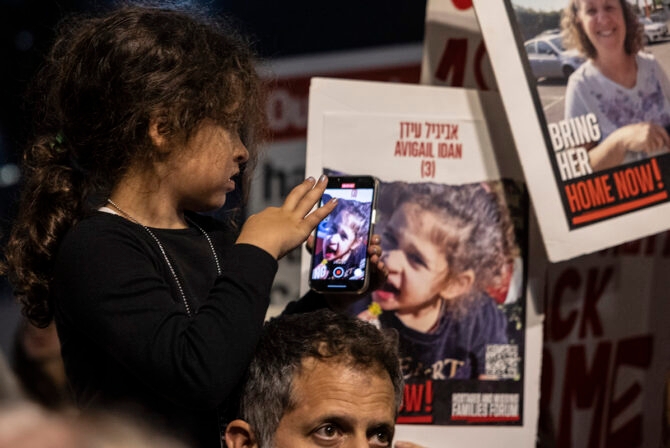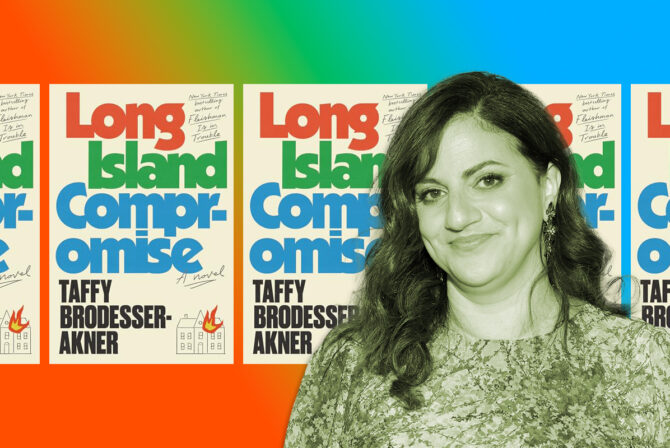I am a rabbi and I treasure the rabbinical responsibility to bring comfort to families and individuals during moments of struggle. But I have also been on the other side, grasping for support from my colleagues when I needed help. So when our son was diagnosed with Fragile X Syndrome, a genetic mutation that causes profound developmental delays and disabilities, I knew I would need to find strength from my teachers. Friends, family members and mentors helped guide us through the experience of having a child who is differently abled, but in particular, three conversations with my fellow clergy that stand out as ever-present thoughts in my journey.
1. “The lows are lower but the highs are higher.”
I heard this from Rabbi Jim Rosen, who also has a son with developmental disabilities, a son who is more than 20 years older than ours. Rabbi Rosen and I sat down to speak before my son was born, when we knew that there was a high probability that he would have Fragile X. I asked Rabbi Rosen, “What is it going to be like? It seems really hard.” He confided in me a truth that all parents with children who are differently abled share: it is hard. It is really hard. Rabbi Rosen made no secret of the fact that there are unique challenges, like delayed potty training or frustrations in communication, hurdles that certainly take a toll on the spirit.
But Rabbi Rosen was uplifting when he explained that the brutal hardships are balanced by a feeling of extraordinary gratification about a child’s accomplishments. I remember Rabbi Rosen explained that when his son first walked, though the milestone was significantly delayed, he and his wife were “literally jumping to the ceiling in joy!” This has been our experience as well. Every time our son can’t do something that his peers can do, like identify colors or his name, my wife and I feel like crying. But this is balanced by the tears of joy that emerge when he accomplishes tasks we thought impossible for him, like using a fork correctly. In order to feel the elation of success, you have to know the hardship of failure.
2. “You may lose relationships during the journey. And that’s OK.”
Rabbi Brad Artson also has a son with autism who also is about 20 years older than our own son. He has written extensively about his experiences as a father and his writings have inspired thousands of people, myself included. I reached out to Rabbi Artson, who graciously and candidly spoke to me and addressed my concerns. The insight he offered that was most profound is that there are some people (with whom we might otherwise have stayed friendly) who are simply not equipped to be in relationship with a family whose child has profound challenges. To say that they’re not equipped is not a denigration of their character, but is a reality about friendships, which change over time, altered circumstances, and the personality of the people involved. It just so happens that having a child who is differently abled is a big part of the personality of our family. Our child’s demeanor, his overeagerness to be physical, and his inability to communicate his feelings makes him a unique playdate. and some kids, and some parents, just are not prepared or interested in working through the awkwardness of that dynamic.
When Rabbi Artson shared this insight with me I felt liberated. He empowered us to infuse our son (and everything that comes with him) into the fabric of our family’s personality even if that meant that we would lose friends. As it happens, we have gained more relationships than we have lost thanks to our son, but it was Rabbi Artson who inspired us to not be afraid of the change that was coming.
3. “We love him no matter what.”
Rabbi Eric Woodward was our neighbor the year our son was born, during my last year of Rabbinical School. His family had a first row seat to our son’s life, and they became nearly as attached to him as we were. We learned about Fragile X at month 3 and Rabbi Woodward (just Eric at the time) and his wife were the first people we turned to immediately after receiving the blood-test results. Though still in rabbinical school, not quite yet a Rabbi, Rabbi Woodward had the wisdom to know exactly what to say. The first words out of his mouth after we shared the news were, “We love him no matter what.” At that moment we felt a strong sense of relief. Yes. Other people will love him no matter what, not just us. We knew at that moment that our son would be raised in a Jewish community that accepted him. After that moment , our friends rallied around us.
Since then, we have never felt like our son lacks people who love him. That is what community is about after all. Sometimes the people in our community know the right thing to say and sometimes they fail trying. But we will always be grateful for these three pieces of wisdom in particular, which guided us through some of our darkest moments.







